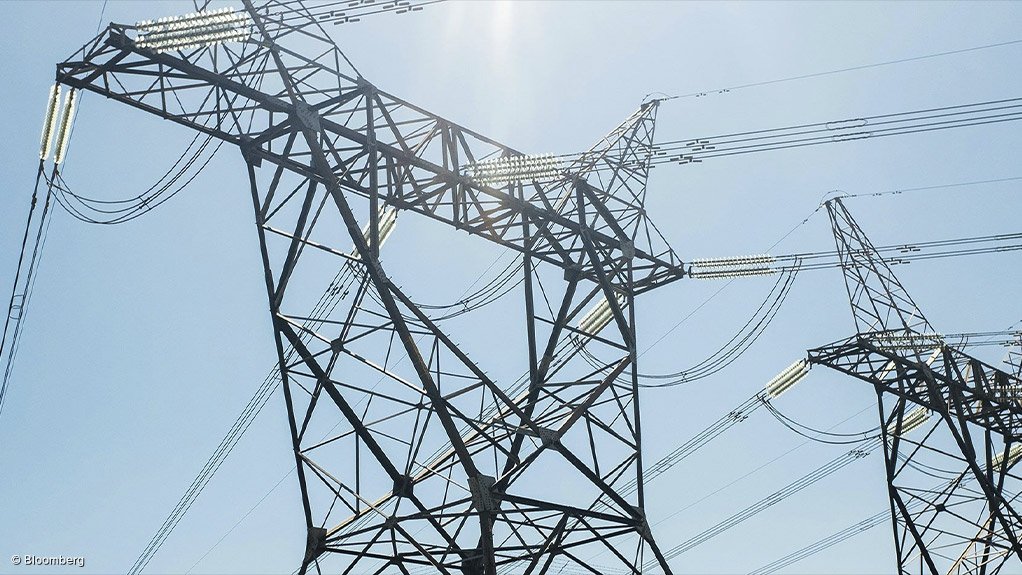South Africa’s State power utility has failed to tap $2.5-billion of cheap loans to build critical transmission infrastructure that would help end the country’s crippling energy crisis.
That’s brought a landmark climate finance agreement — the Just Energy Transition Partnership — to a virtual halt, and extends the country’s reliance on coal plants. Finance ministry pressure on Eskom Holdings SOC Ltd. to not take on new debt and a lack of clarity on how private investors can participate are hindering the deployment of about $7-billion of energy financing, according to a US Treasury official and six other people familiar with the situation.
Eskom said a moratorium on it taking on more debt without the approval of the finance minister is the main reason for its inability to finalize loans. That funding is intended to target a key weakness in South Africa’s energy system: the lack of transmission capacity in provinces with the best solar and wind power potential.
“Eskom would welcome the allocation of a portion of these funds to allow it to expand its transmission network,” the company said in a response to questions.
The slow progress of the JETP, first announced at an international climate conference in 2021, highlights the difficulties in transitioning to cleaner energy and the need to cushion the blow for coal-dependent communities.
South Africa’s pact — with the US, UK, France, Germany, European Union, Netherlands and Denmark — was hailed as a prototype for similar agreements with other developing nations, such as Indonesia and Vietnam. But it’s been beset by political infighting and foot-dragging over the closure of coal-fueled power plants.
NO GRID
Eskom, which has about R443-billion in debt, said it’s working with the finance ministry and the presidency on how to access the loans including “off-balance sheet options” — a reference to liabilities that the utility would not have direct legal responsibility for.
South Africa’s presidency said exemptions may be issued to allow Eskom to invest in transmission infrastructure. South Africa’s National Treasury didn’t respond to a request for comment.
The country’s western partners are frustrated, but remain committed, the people said, asking not to be identified as the conversations are private. The amount of money available has risen from an initial $8.5-billion in loans, grants and guarantees to $9.3-billion, the US Treasury official said, withholding their name in line with government policy. Of that amount $716-million is in the form of grants.
The investment partners are encouraging Eskom and South Africa’s National Treasury to take up the transmission loans because they’re available at attractive interest rates and a stronger grid is essential for accelerating investment in power plants, the US official said. They’re hoping for progress once Dan Marokane takes over as Eskom’s chief executive officer next month, the official said.
South Africa needs to pass its Electricity Regulation Amendment Bill and clarify how the private sector can invest in transmission assets, the official said.
The nation is yet to complete the separation of Eskom’s transmission unit from the rest of the company, a key step needed to attract investment, despite President Cyril Ramaphosa saying the government would “immediately embark” on the process in February 2019. An implementation plan for the JETP funds was completed in November, months behind schedule.
The presidency said its information on how private companies can invest in transmission will be provided in “due course,” and the government plans to pass the ERA bill before elections, which are on May 29.
Officials representing other countries taking part in the pact expressed similar concerns about the pace of investment in transmission and said there are a lack of projects ready for funding. A €2.1-billion ($2.27-billion) Spanish program to help finance South African energy and water projects, which is separate to the JETP, has seen a similar lack of take up, the people said.
The European Investment Bank, the agency through which the European Union is channeling its contribution, said it “stands ready” to provide €1-billion, but it has yet to deploy any capital as part of the program.
Adding to the frustration is that the coal-fired power plants that South Africa agreed to decommission as part of the pact are now set to stay open for longer, jeopardizing commitments to reduce greenhouse gas emissions. The US official said that while the decision was understandable as South Africa is experiencing regular power cuts, it threatens the key goal of the JETP.
The presidency said it doesn’t expect the “trajectory” of the decline in emissions to be affected
So far, almost $591 million in grants have been allocated and just €1.1-billion in loans have been disbursed by France and Germany, with the other investment partners yet to announce distribution of their pledges.
EMAIL THIS ARTICLE SAVE THIS ARTICLE
To subscribe email subscriptions@creamermedia.co.za or click here
To advertise email advertising@creamermedia.co.za or click here











